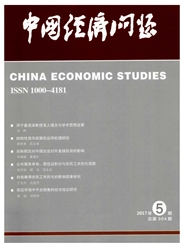

 中文摘要:
中文摘要:
多数有关就业不平等的研究重视后端不平等,而忽视了前端的就业渠道不平等。本文基于移民和城市居民的视角,采用2002CHIPS数据和mlogit模型研究了中国劳动者就业渠道的内生决定因素。实证发现,教育、年龄和婚姻因素有助于造就城市居民“关系网络型”就业,但对移民的帮助有限;在其他就业渠道方面,上述因素对于城市居民和移民两类人群的影响也各有差异,原因可能来自人群身份属性。本文的政策含义是,要缩小中国收入差距,必须高度重视就业渠道的不公平问题,努力为劳动者提供平等的就业选择机会。
 英文摘要:
英文摘要:
Most research on job unfairness highlights the backend unfairness, while ignoring the frontend unfairness of job searching. Based on the perspective of both immigrants and urban residents, using the 2002 CHIPS data and mlogit model method, this article studies the endogenous causes of the job searching channels of Chinese workers. It is found that, the education, age and marriage factors can contribute to the guanxi of the urban residents, but not the immigrants. Towards other channels, the above factors have different influences towards the two type residents, with possible reasons from the identity. So the article suggests that, the unfairness of job searching channels must be highly respected, and job chances have to be provided equally, in order to reduce income gap.
 同期刊论文项目
同期刊论文项目
 同项目期刊论文
同项目期刊论文
 期刊信息
期刊信息
